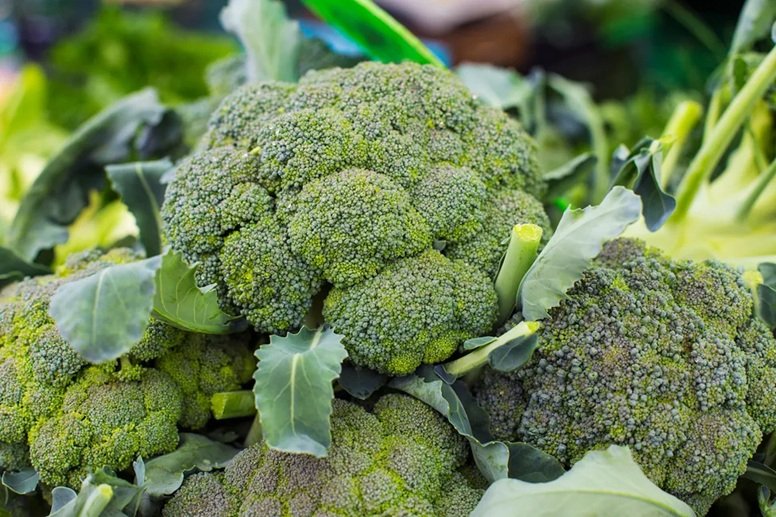Unlock Your Child's Potential: 5 Broccoli Superpowers

As a parent, you're constantly seeking ways to nurture your child's growth, health, and intelligence. You scour the latest research, search for the best schools, and encourage active play. But what if one of the most powerful tools for unlocking your child's potential is already sitting in your refrigerator, disguised as a humble green vegetable? It’s time to meet broccoli—not just a side dish, but a nutritional superhero packed with unique superpowers designed to support every aspect of your child's development.
Often the subject of dinner-table negotiations, broccoli is far more than a source of dietary fiber. It is a veritable treasure chest of vitamins, minerals, and unique plant compounds that work in synergy to build strong bodies, sharpen young minds, and build a foundation for lifelong wellness. Let's explore the five key superpowers of broccoli that make it an indispensable part of your growing child's diet.
Superpower #1: The Bone-Building Booster
Childhood is a period of rapid physical growth, where bones are lengthening and strengthening at an remarkable pace. Broccoli is a champion for skeletal health, thanks to a powerful trio of nutrients:
-
Calcium: While dairy often gets the spotlight for calcium, broccoli is a respectable plant-based source. Adequate calcium is essential for building dense, strong bones, reducing the risk of fractures in active kids.
-
Vitamin K: This is the unsung hero of bone health. Vitamin K acts as a director, guiding calcium to the bones where it's needed most and ensuring it is properly utilized. Without sufficient Vitamin K, calcium cannot do its job effectively.
-
Vitamin C: Crucial for the formation of collagen, the protein framework that gives bones their flexibility and structure. Think of collagen as the scaffolding upon which calcium minerals are deposited.
Together, these nutrients ensure that your child’s growing frame is not only big but also resilient and strong.
Superpower #2: The Immune System Defender
It seems like children are magnets for every cold and bug that goes around. Broccoli acts as a shield for the immune system in several ways. Its exceptionally high levels of Vitamin C are vital for the production and function of white blood cells, the body's primary defense army. But broccoli's immune power goes deeper.
It contains a compound called sulforaphane, which is generated when the vegetable is chewed or chopped. Sulforaphane has been shown in studies to activate antioxidant pathways within the body, essentially turning on the body’s own natural defense systems to fight off oxidative stress and inflammation. By including broccoli in your child's diet, you're not just giving them a vitamin; you're activating their internal bodyguard.
Superpower #3: The Brain Development Catalyst
A child's brain is a complex, rapidly developing organ that requires specific nutrients to build neural connections and support cognitive function. Broccoli is surprisingly rich in several of these brain-boosting compounds:
-
Choline: This essential nutrient is critical for brain development, particularly for memory and learning. It helps build cell membranes and is a precursor to acetylcholine, a key neurotransmitter.
-
Lutein and Vitamin K: Often associated with eye health, Lutein also accumulates in the brain and is linked to better cognitive performance. Vitamin K, in addition to its bone role, is involved in the metabolism of sphingolipids, a type of fat densely packed in brain cells.
-
Antioxidants: The brain is highly susceptible to oxidative damage. The potent antioxidants in broccoli, including Vitamin C and flavonoids, protect delicate brain cells from free radical damage.
Feeding the brain with these nutrients supports focus, memory, and overall cognitive health, giving your child a distinct advantage in their learning journey.
Superpower #4: The Digestive Health Regulator
A happy gut is the cornerstone of a child's overall well-being, influencing everything from nutrient absorption to mood. Broccoli supports digestive health in two key ways:
-
Fiber: Broccoli is an excellent source of both soluble and insoluble fiber. Insoluble fiber adds bulk to stool, promoting regular bowel movements and preventing constipation—a common issue in children. Soluble fiber acts as a prebiotic, feeding the beneficial bacteria in the gut.
-
Prebiotic Potential: The fiber in broccoli helps nourish a healthy gut microbiome. A balanced gut flora is linked to improved digestion, a stronger immune system (a large portion of which resides in the gut), and even positive effects on mood and behavior.
By supporting a smooth-running digestive system, broccoli ensures that all the other wonderful nutrients your child consumes can be effectively absorbed and used by their body.
Conclusion: Embrace the Power on the Plate
Viewing broccoli through the lens of these five superpowers transforms it from a simple vegetable into a strategic tool for parenting. It is a natural, whole-food solution for supporting your child's physical growth, immune resilience, cognitive sharpness, and digestive comfort. The journey to unlocking your child's potential begins with the choices you make at the dinner table. By consistently incorporating this nutritional powerhouse into family meals, you are investing in a foundation of health that will benefit them for years to come.
Frequently Asked Questions (FAQ)
Q1: My child is a picky eater and refuses to eat broccoli. Any tips?
A: Absolutely! The key is stealth and presentation.
-
Blend it: Incorporate steamed broccoli florets into smoothies with sweet fruits like bananas and mangoes. The flavor is easily masked.
-
"Disguise" it: Finely chop broccoli and mix it into pasta sauces, omelets, or ground meat for tacos or burgers.
-
Make it fun: Create "broccoli trees" with a dip (like yogurt or hummus) as "cheesy" or "cheesy" sauce is a classic winner.
-
Involve them: Let your child help wash the broccoli or arrange it on a baking sheet. Involvement often increases curiosity and willingness to try.
Q2: Is frozen broccoli as nutritious as fresh?
A: Yes, often even more so! Frozen broccoli is typically flash-frozen at peak ripeness, which locks in its nutrients. Fresh broccoli can lose some vitamin content during transport and storage. Both are excellent choices, so opt for whatever is most convenient and affordable for your family.
Q3: What is the best way to cook broccoli to retain its nutrients?
A: To preserve the maximum amount of nutrients, especially the heat-sensitive Vitamin C and the enzyme that creates sulforaphane:
-
Steaming is the best method. Cook until it's bright green and tender-crisp, not mushy.
-
Quick sautéing or roasting at a high heat for a short time are also good options.
-
Avoid boiling for long periods, as water-soluble vitamins like Vitamin C and B vitamins can leach out into the cooking water.
Q4: How much broccoli should my child eat?
A: There's no strict rule, but a good guideline is a serving size that's roughly the size of your child's fist. A few florets a few times a week is a fantastic start. The goal is consistent inclusion, not overwhelming quantity.







